SEO
The meaning of the abbreviation SEO is Search Engine Optimization. It means a process of making your website to appear often on the results page of search engines in relation to the keywords that users type in. Then the higher ranking of your pages receive visibility enables you attract attention of prospective and existing customers to your business.

Types of SEO
SEO has many factors; it can be described as an array of techniques aimed at enhancing a particular site’s presence on the search engines. It is noteworthy that non-consolidated and separate named SEO has to be comprehended to create an integrated approach. Let’s describe the main SEO types; this guide will help you apply an extensive strategy for improving your web performance.
1. On-Page SEO:
On-Page SEO is the set of activities aimed at increasing the ranking of individual pages in search engines and receiving more qualified visitors. It entails a process of maximizing relevance of the content of a single web page as well as the HTML source code of the page.
Unquestionably the most important step of on-page SEO is metallic element content optimization:
- Title Tags: Coming up with a great title for the page, one that is effective and unique, creative, and incorporating specific keywords for each page.
- Meta Descriptions: Optimise and create interesting meta descriptions to boost the CTor.
- Header Tags: Heading is important while writing an article, make sure to use H1, H2, H3 format while writing.
- Content Quality: Publish quality, timely, and useful content that is valuable to the readers or target consumers.
- Internal Linking: Internal linking should be used for the benefit of search engines where you make them understand the structure of your website and also where link juice is re-directed.
- Image Optimization: When employees are incorporating images into their messages or posts, they should ensure that the alt texts of the images are descriptive to enable screen readers to provide a detailed description of the image to the users together with minimizing the size of the images to ensure quick loading.
- URL Structure: Use keywords in the URL but make them easily understandable and free of symbols.
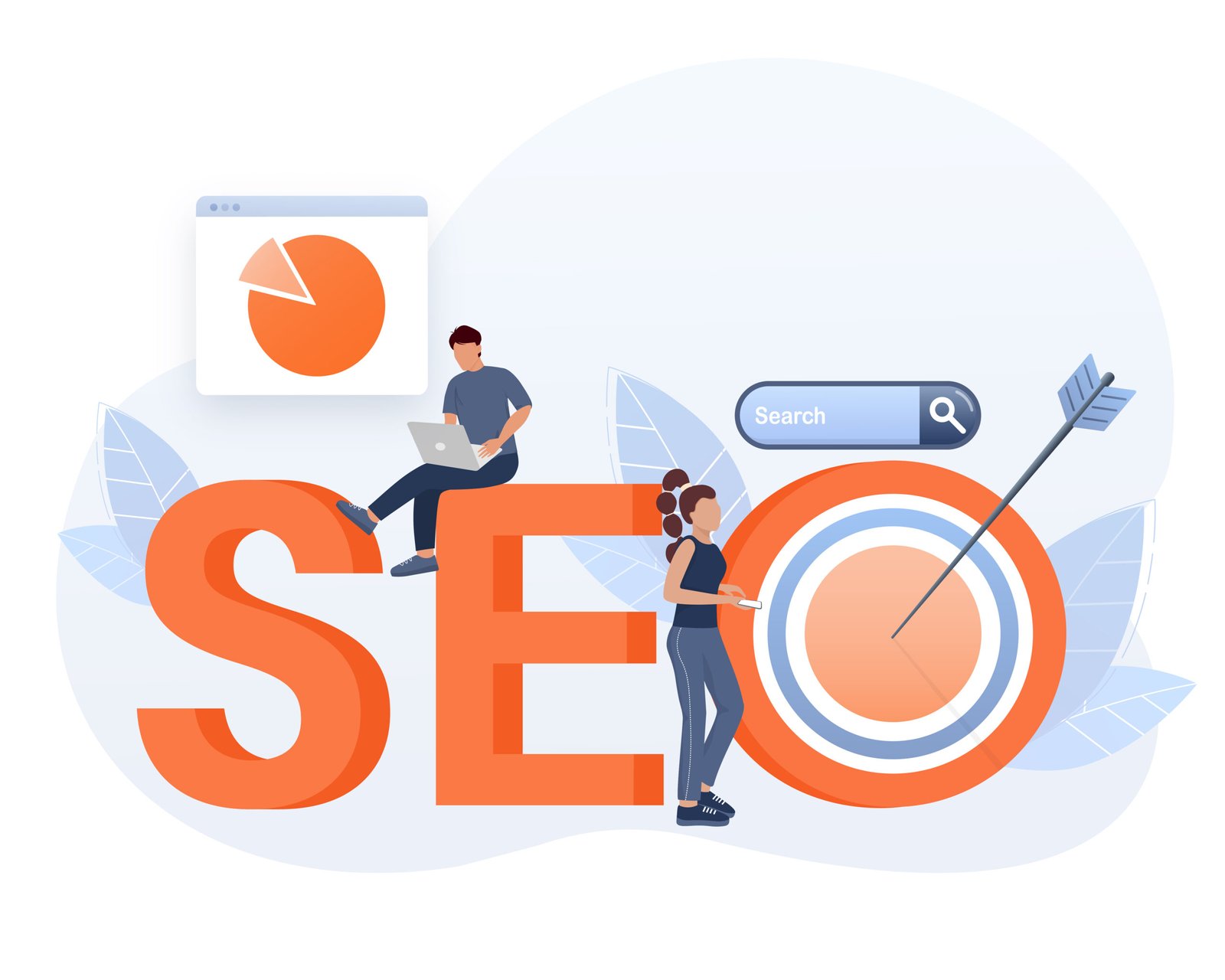

2. Off-Page SEO
Off-Page SEO refers to processes that are carried out outside a company’s website in order to optimize the visibility of the company’s site in search engine tallies. This entails creating links, as well as raising the domain authority.
Off-page SEO refers to all the activities for promoting a website that take place out of the website, and its key components are explained below:
- Backlinks: Most important of all is to ensure that better quality back links sources are from relevant website.
- Social Media Engagement: Direct the people to your posts by social networking on social media.
- Guest Blogging: Contribute articles to other reputable blogs and this helps in getting back links as well as exposure.
- Influencer Outreach: Share your content with influencers in your industry so that they share it on their page or with their followers.
- Brand Mentions: One of the most effective ways of getting traffic back to your website is to get other sites and forums to mention your brand.
3. Technical SEO
Technical SEO deals with the procedural elements of a website that can enhance its crawl and indexing process by the search engines. This type of SEO mainly stresses on the enhancement of the site’s structure.
The fundamental features of technical SEO are as follows:
- Site Speed: Optimize your website to be fast because this is good news to both the client and search engine.
- Mobile-Friendliness: Maximize the website’s compatibility with mobile devices so that indeed there is increasing use of mobile devices.
- XML Sitemaps: This also entails the production and uploading of XML sitemaps to assist the different search engines in the efficient crawling of the site, if need be.
- Robots. txt: Use the robots. txt file to dictate how and when search engines index your site.
- Secure Sockets Layer (SSL): Adding https at the start of the links will ensure that user data is safe and this builds credibility.
- Canonical Tags: In order to avoid the problem of being penalized for duplicate content, it is recommended to use the canonical tag.
- Structured Data: Make use of the structural data, also known as the schema to improve the understanding of your content by the search engines.

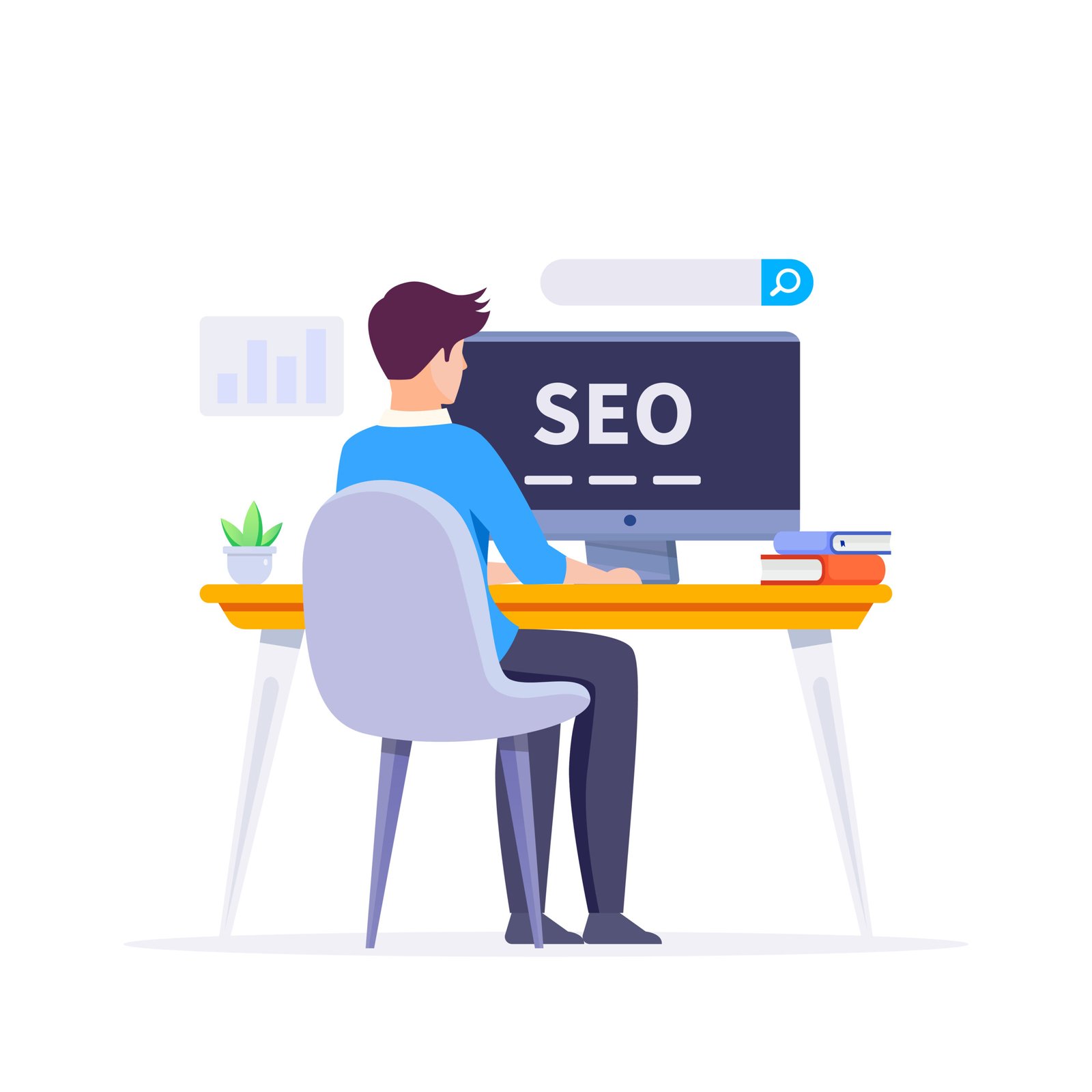
4. Local SEO
Local SEO concerns the website optimization so that it could appear in local search results. This is especially relevant to those business organizations that are located in certain regions of the country.
Main Factors of Local SEO:
- Google My Business: Ensure you respond to messages on your Google My Business listing and name it to run on desktop computers.
- NAP Consistency: Enter your Name, Address and Phone number and always use the same details each time you are registering your business on the internet.
- Local Keywords: Employ local keywords into your content as well as the meta tags.
- Customer Reviews: Ask for customers to leave positive comments on Google, and other review sites .
- Local Citations: Endorsed in Yellow Pages, White Pages and other citation websites.
5. E-commerce SEO:
E-commerce SEO can be defined as an optimization of the e-shops in order to achieve better ranking. It entails most of the strategies that are used in enhancing the visibility of the product pages as well as the categories that contains the products.
The principal components of E-commerce SEO include:
- Product Page Optimization: When naming the products, it is recommended that the title of each product is descriptive and distinct plus the product description and photos should be of high quality.
- Category Page Optimization: Add matchable keywords and the important information regarding the category to the category page.
- User Reviews: Solicit for user reviews to enhance trust and to rank.
- Internal Linking: Whenever it is possible, use internal links to lead users to other products.

How Does SEO Work?
Seo (Search Engine Optimization) is a complex process of enhancing a website’s rankings and placing it high among other websites when certain keywords are typed search engines. The goal is to attract organic (non-paid) traffic from search engines like Google, Bing, and Yahoo. Here’s a breakdown of how SEO works: The goal is to attract organic (non-paid) traffic from search engines like Google, Bing, and Yahoo. Here’s a breakdown of how SEO works:
1. Crawling and Indexing of Search Engines
Web crawlers or bots are used by search engines to identify links and to scan content to add to the index. Here’s how it works:
- Crawling: They move around through the various links starting from one page to the other in an attempt to index the internet. They seek fresh materials also they Often look for new material on the same topic.
- Indexing: When a page is crawled, it is indexed in the search engine. This is where the content is formatted in such a manner that would assist in achieving easy access to specific information in the future.
2. Ranking Algorithms
Different search engines have developed elaborate techniques of filtering ranked pages by means of their relevance, quality and, relevance to users. Some key factors include:
- Keywords: Keywords in the content, titles and meta descriptions are one of the ways of assuring that the online adverts will be effective.
- Content Quality: Content has to be top quality, distinct, and interesting to keep readers engaged.
- User Experience: Attributes such as; time taken to load a page, how easily navigable a site is on a phone and many other features. • Backlinks: The quantity as well as quality of the links which are linking to the website external links.
- Engagement: Website user engagement factors like; click through rates bounce rates, and time spent on the page.
3. On-Page SEO
On-page optimization is all about the optimization of single web pages with the aim of increasing the rank. This includes:
- Title Tags: Developing highly specialised, specific and semantic titles for every page.
- Meta Descriptions: What AE styles make for great meta descriptions to get more clicks to the page.
- Header Tags: Structuring content with the help of H1, H2, and H3 tags.
- Content: Developing high quality, timely and interesting content for the target audiences.
- Internal Links: Storing it in a site map so that other related pages in the particular site can be linked to.
4. Off-Page SEO
Off-page SEO refers to activities, which take place on other sites and its aim is to increase the authority of certain website. This primarily involves:
- Backlinks: This includes having usable pages, high traffic website, news and governmental websites, trustworthy websites, related websites, and popular websites, etc.
- Social Signals: Sharing contents to the social media pages with the aim of getting people to visit the website.
- Brand Mentions: Making it to other people’s websites so that they can start discussing it.
5. Technical SEO
Technical SEO refers to the process of making improvements on the website to suit the standards of the search engine so that the motors can crawl through it and index it. This includes:
- Site Speed: Making certain that the site is easy to load as well.
- Mobile-Friendliness: M-optimization of the given site for mobile gadgets.
- Sitemaps: Submitting and creating the new XML sitemaps.
- Secure Sockets Layer (SSL): Employing of the HTTP secure method to ensure security of the site.
- Structured Data: Using schema markup to assist the engines in comprehending your content in a better manner.
Developing Your SEO Skills:
Making Use Out of Search Engine Land’s SEO Resource
This is especially important in this ever-changing world of SEO, which is why it is essential to always be up to date as well as constantly practicing your knowledge. Search Engine Land is one of the finest trade publications, which provides a lot of content to learn and master search marketing for novices and experts. Here, I will focus on a number of them from search engine land and show how you can benefit from this website to improve your knowledge on the same.
Why Should There Be a Focus on Skill Development of SEO?
SEO is not a static process; the search engines’ algorithms in use and guidelines for practicing SEO evolve continuously. To remain effective, SEO professionals must:
Stay Updated: This entails making sure that you are aware of the kind of algorithms that are being used as well as the trends that are present in the particular industry which you are operating in.
Improve Strategies: Always improve methods of increasing the index of website and ensure that it performs optimally.
Boost Career Prospects: More intricate knowledge of the various SEO strategies improves the chances of getting better job offers and higher pay.
Important SEO Tools by Search Engine Land:
1. SEO Guides:
As a reference, there are guides and articles discussing and explaining SEO published in Search Engine Land. These resources are invaluable whether you are a layman who needs to have a general comprehension or a highly technical person who wants to comprehend deeper into details.
Recommended Guides:
- SEO: SEO Basic to Advanced: Encompasses all the aspects of SEO like on page optimization, off page optimization and technical SEO.
- How to Conduct Keyword Research: Subsequent strategies of searching and applying key terms and phrases.
- SEO Audit Checklist: How to do Effective SEO Audit for Your Website: A Step-by-Step Guide
2. SEO News and Updates
It is important to be informed with the new trends in the SEO industry. Search Engine Land has news articles that are released concerning changes in algorithms; changes in industries; and new tools.
How to Utilize:
- Daily News Section: News section should be checked daily if there are significant changes in Google’s algorithm and any other important changes in the industry.
- Subscribe to Newsletters: An opportunity to be aware of current tendencies is to subscribe to Search Engine Land’s newsletters which deliver the information to your inbox.
3. Webinars and Podcasts
Some of the topics on Search Engine Land include Pay Per Click/ AdWords, SEO, social media, and Video Marketing, and it has webinars as well as podcasts about the different topics. These are the best especially when addressing experts’ knowledge, as well as to get answers to particular questions.
How to Utilize:
- Attend Webinars: Join the next webinars to be aware of the most effective SEO techniques and instruments.
- Listen to Podcasts: Take Search Engine Land podcast to learn on the go by subscribing to its series.
4. Review on SEO Tools and Software
Tools require selection to allow for the proper execution of SEO. Search Engine Land effects reviews and comparisons of the SEO tools, and can assist a user in decision making process
Recommended Tools:
- Keyword Research Tools: Lectures on similar tools as Arefs, SEMrush and Moz.
- Technical SEO Tools: Leakage of valuable information about tools such as Screaming Frog as well as Google Search Console.
- Content Optimization Tools: Link to tools as a recommendation such as Yoast SEO, and Grammarly.
5. Case studies
Successful stories and case studies are particular real-life examples of how specific strategies in SEO have been put into action.
How to Utilize:
- Study Case Studies: Discussion of cases in practice that demonstrate the use of the various SEO strategies that have been discussed.
- Implement Learnings: Relate the presented strategies and the information obtained from case studies to your work.
6. SEO Training and Certifications
The relevant certification of Search Engine Land is SEO training and certification that are provided through partnerships with other organizations. These programs are intended to offer specific educational format and official credentialing of your competencies.
How to Utilize:
- Enrol in Courses: The availability of training programs and certification courses should be used to show the company that you possess certain skills that will help and that can improve the knowledge on a particular subject.
- Leverage Certifications: Employments of certifications to reinforce your resume and demonstrate your competence to anybody who wants to hire you or contract with you.
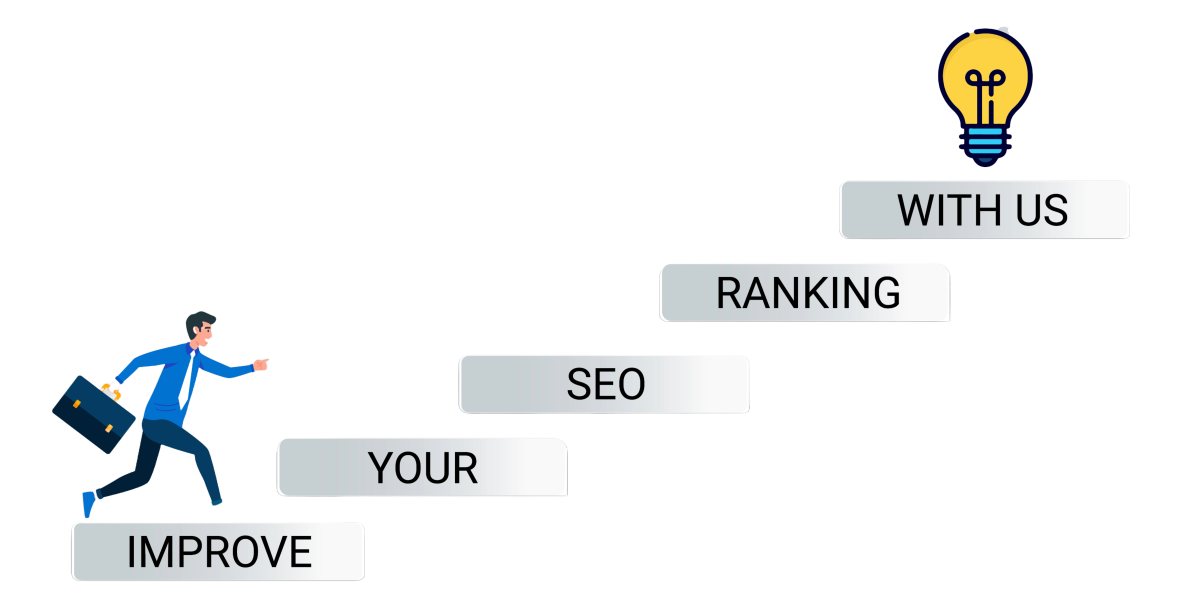
How to Learn SEO:
SEO is a blend of knowledge and experience; therefore, it is never enough just to read about it. Here are some steps to get you started: Here are some steps to get you started:

1. Understand the Basics
Begin by familiarizing yourself with the basic concepts of SEO:
SEO Terminology: Define the main terms including the keywords, backlinks, SERPs, and others.
Search Engine Functionality: Outline the concepts of how search engines work including crawling, indexing, and rankings.

2. Take Online Courses
Several online platforms offer comprehensive SEO courses:
Google’s SEO Starter Guide: It’s a great place to start the researchers information searches in a relatively safe environment.
MOZ Academy: Provides number of free as well as paid tutorials on SEO basics as well as complex concepts.
Coursera and Udemy: They provide SEO classes for learners at different levels of learning; the beginning level, intermediate level, and the advanced level.
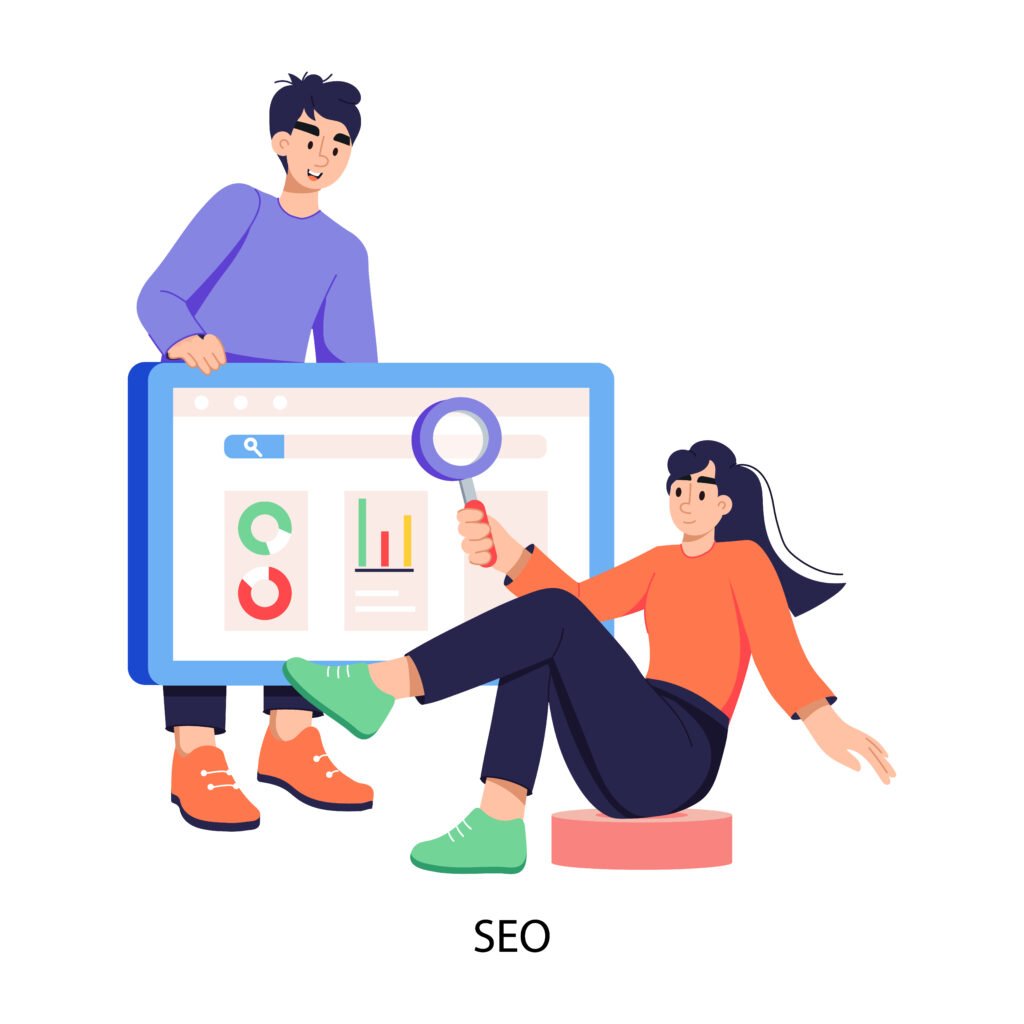
3. Use SEO Tools
Familiarize yourself with popular SEO tools:
Google Analytics: For understanding the trends and measuring visited sites and their users’ activity.
Google Search Console: To closely monitor your site presence and diagnose a problem with it in Google Search.
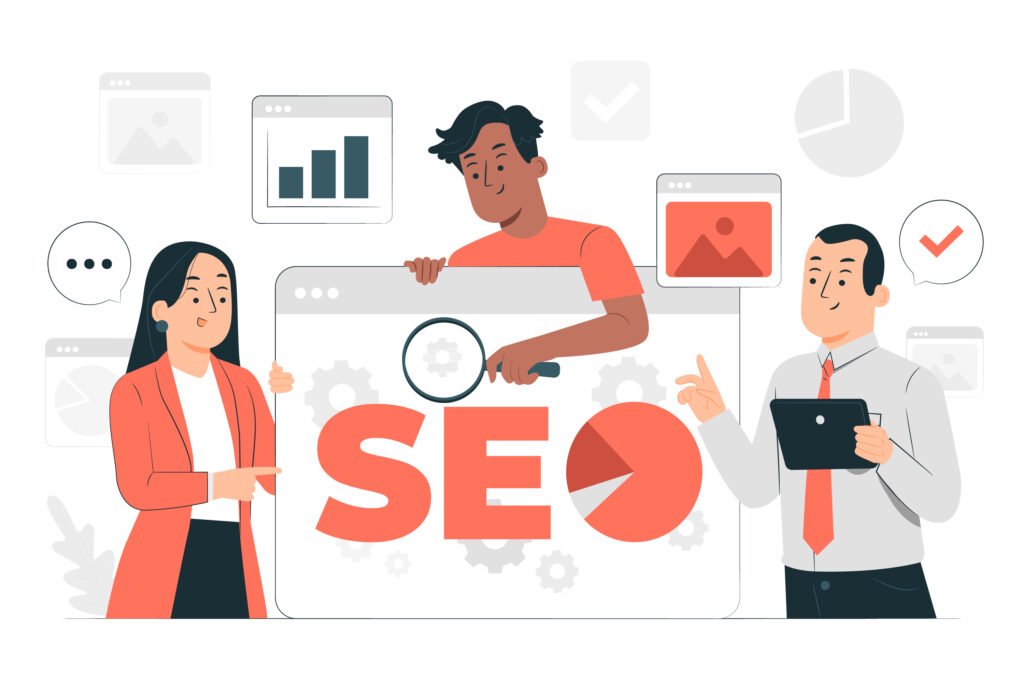
4. Practice SEO
Apply what you learn by practicing on your own website or blog:
Keyword Research: To find such keywords, Google Keyword Planner is among the tools that can be used to generate keywords.
Content Creation: Create content and/or modify text for SEO.
On-Page Optimization: Use SEO friendly title tags, meta descriptions and internal linking.
Link Building: To increasing the ranking, make requests to other websites for the purpose of backlinks.
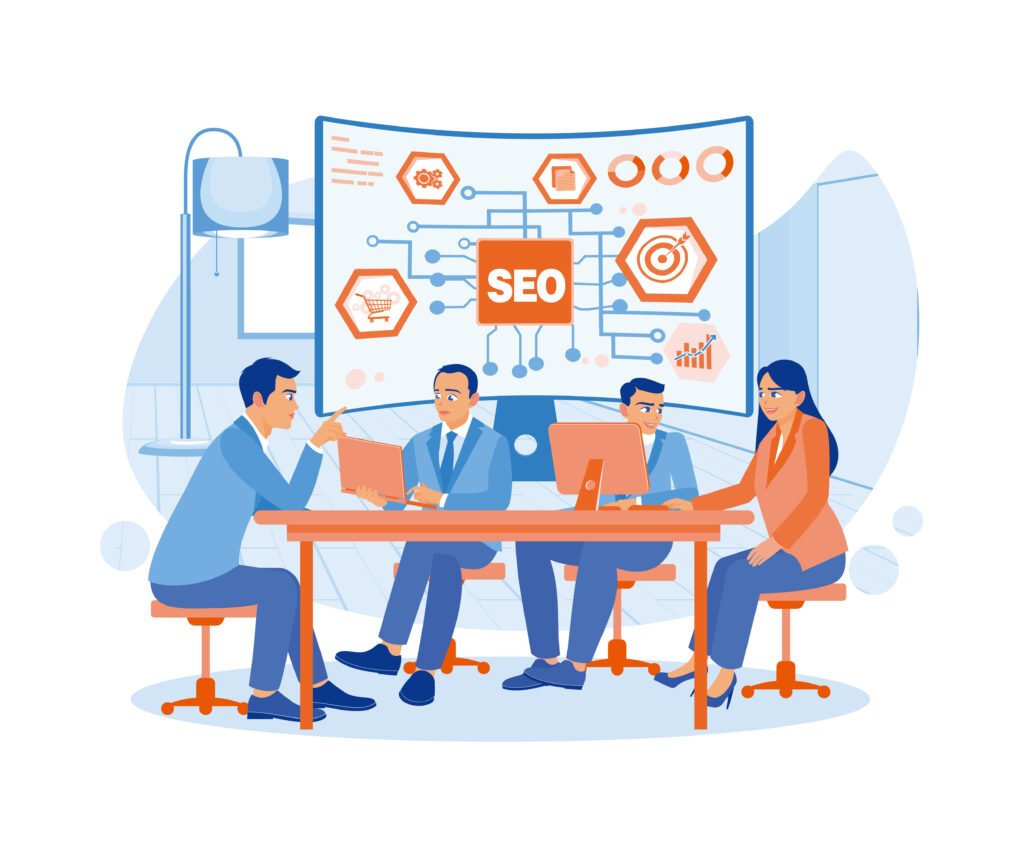
5. Join SEO Communities
Engage with other SEO professionals to share knowledge and stay updated:
SEO Forums: Go to the different forums possible like the Warrior Forum and SEO Chat.
Social Media Groups: Use LinkedIn and-Facebook groups specific to Seo.
SEO Conferences and Webinars: Engage with professionals in the field to expand your horizons and even gain new insights.
Why is SEO Important?
Increased Traffic
Organic search results get more clicks and traffic when your website is ranked in the top positions on the search engine results pages (SERPs).
Cost-Effective
Let me note, SEO is one of the most effective economical tools because it focuses on the audience that actively searches for your products and/or services online.
Improved User Experience
Doing SEO allows enhancement of the website usability and usability of the website with the users.
Brand Credibility
People tend to believe what they find when searching for something in the specific search engine and being ranked high for the keywords the user was searching for raise the level of trust of the specific site.
SEVEN STEPS in Building Your SEO Skills Based on Search Engine Land:
Set Learning Goals
Outline what aspects of SEO you would like to focus (for example, keywords, technical aspect).
Create a Learning Schedule
Spent an amount of time weekly in reading articles, webinars, and podcasts.
Apply Knowledge Practically
Mirroring what you have learned in your seminars and classes, apply these strategies you obtain to your own website or blogs to experience it in practice.
Engage with the Community
Engage in discussion regarding articles shared and interact with other SEO professionals.
Stay Updated
The professional must make it a point to visit the Search Engine Land website often in order to update his or her knowledge.
Measure Progress
After implementing the SEO strategies, one should use SEO tools to monitor progress in effort to assess the effectiveness of the employed strategies.
Seek Feedback
Consult with other people, especially your seniors or peers, so that you can learn from them and better your approaches.
Conclusion
Building up your SEO skills is not on a one-time basis but it does need commitment and the right tools. Here are some of the resources that you can find in Search Engine Land; tools, guides, and updates that can turn the course in your favour. They are the authoritative resources that help extend your skills and know-how, learn trends in the industry, and apply fresh methodologies to increase your website’s traffic. Happy learning!